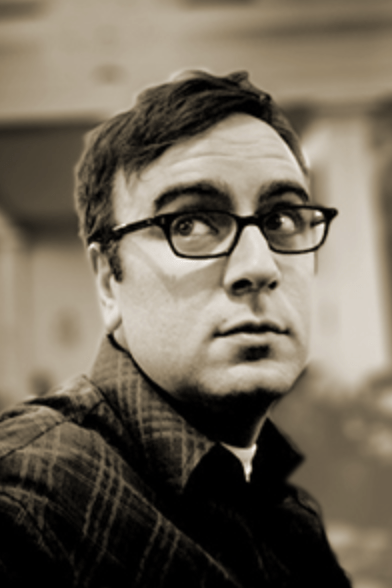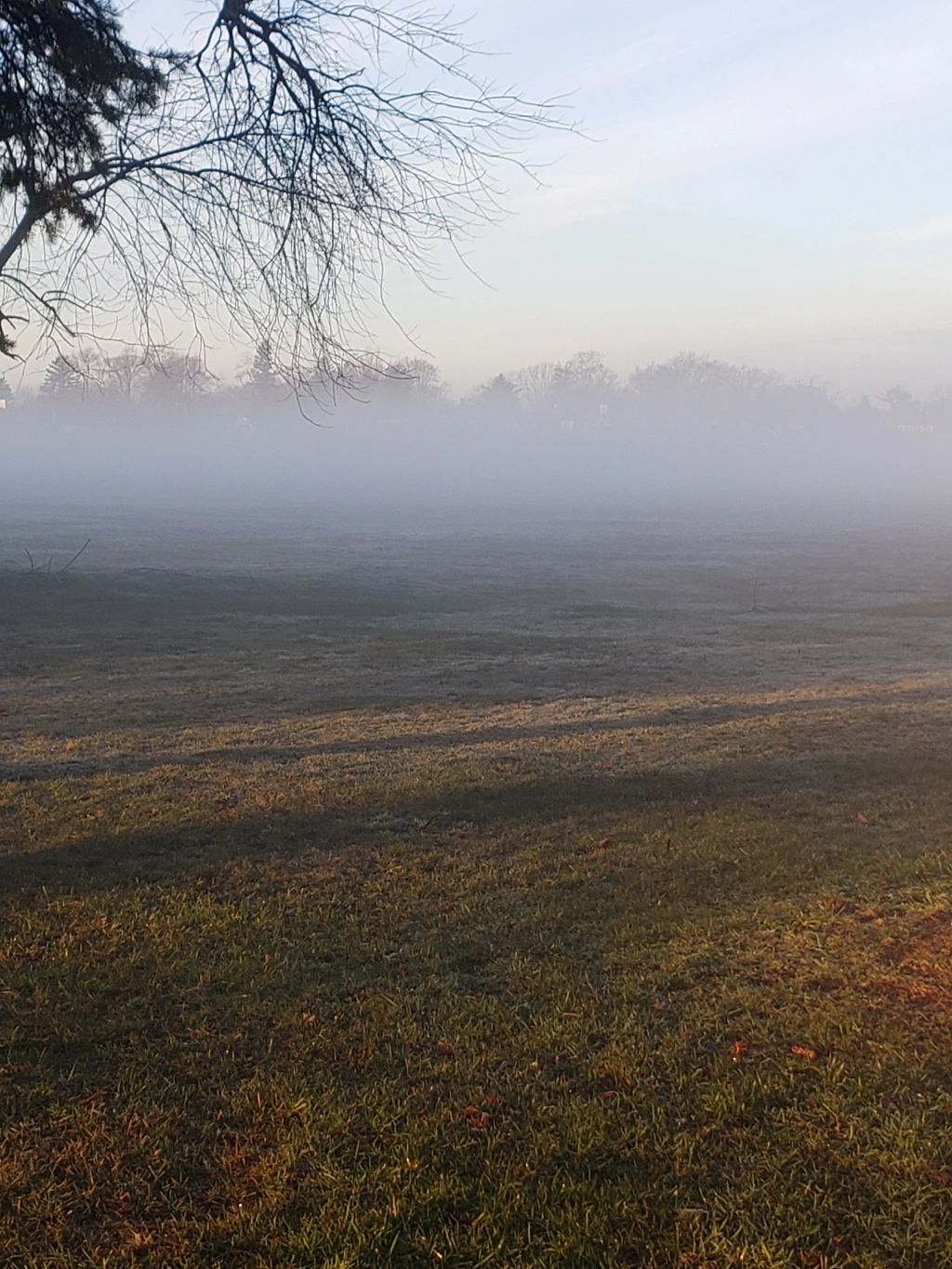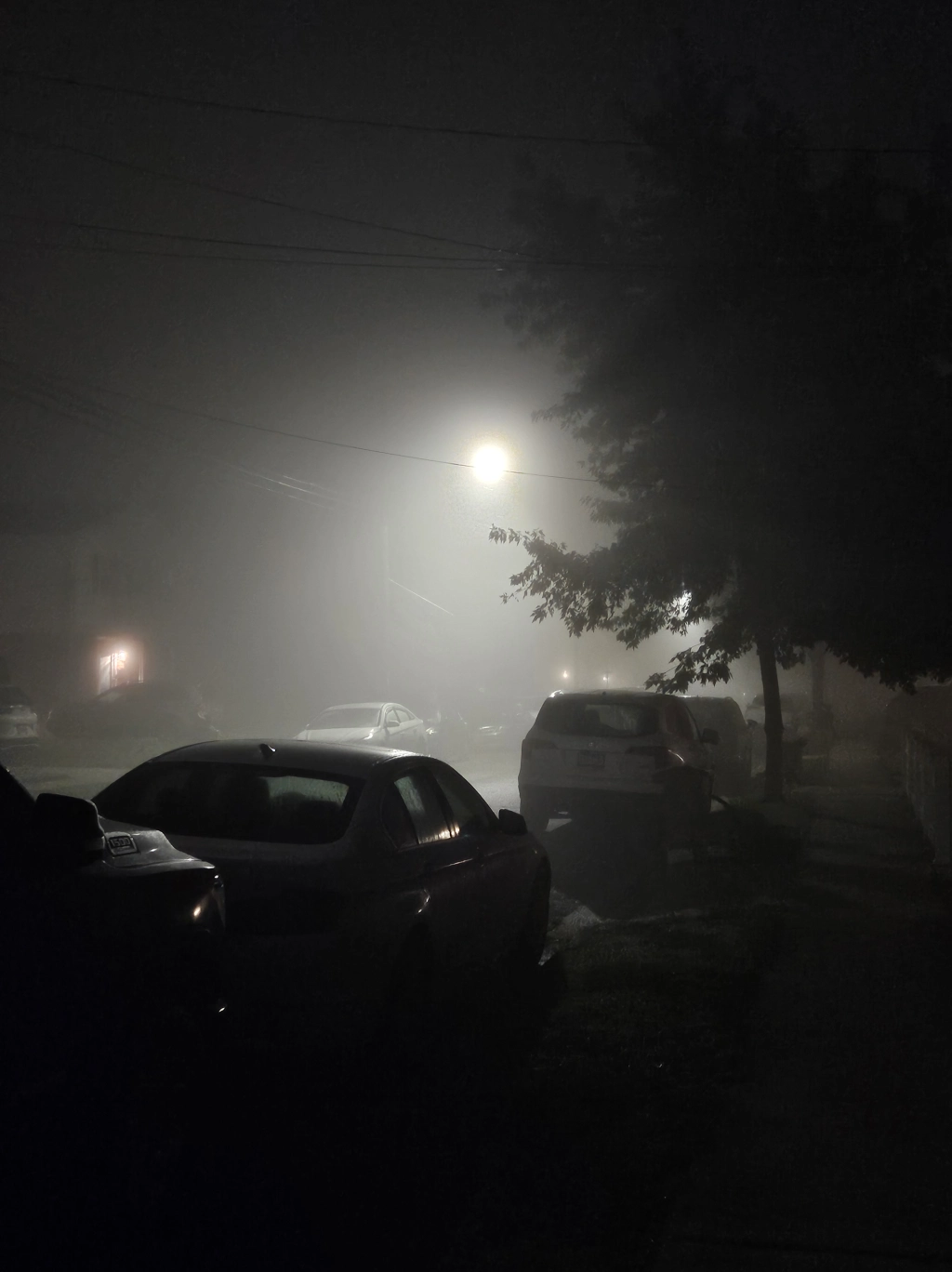If one thing is to be said about my experience reading Robert Krut’s Watch Me Trick Ghosts it is that we all have ghosts: ghosts from our pasts, ghosts of our futures, and ghosts of the inevitable things that occur in everyday life. Krut talks about exactly that in his poetry collection, a hauntingly alluring book about the grotesque aspects of the mundane. Being a fan of the paranormal, and knowledgeable of the many traumas brought forward by life, these ghosts were one of the main themes stuck in my mind as I read Watch Me Trick Ghosts. In this interview, Krut and I talk about influences for his book, the effects that the pandemic has had on his publication process, James Merrill’s occult presence, and the significance of location and geography.
(Read Robert Krut’s “365X365,” published in Pine Hills Review in May 2021.)
Where do you find yourself answering these questions, nearly two years in this seemingly never-ending pandemic? A coffee shop laden with masks, somewhere outdoors, or maybe in the confines of your own living space?
While we have ventured out a bit more in recent months, I still find myself writing in the same spot where I wrote most days during lockdown—a little nook in our house built for a tiny table where I start most mornings. Our place is a small bungalow here in Los Angeles, built by the studios in the 1930s (we can see the Warner Brothers water tower from our backyard), and I am sitting in this pocket that looks out to the street, writing while having morning coffee.
Your new book, Watch Me Trick Ghosts, starts with a brilliantly uncomfortable poem about a dinner party, “The Dinner Party.” This isn’t any dinner party. There are fingers in cups, traumatic memories, mentions of wounds. It ends with a threatening line, “Or leave the party with a tourniquet and a missing limb.” What intrigues you about what I guess I would call the grotesque? What made you choose this as the opening of your book?
I’ve always been fascinated by the idea of the grotesque in the everyday—I suspect I’m not alone in this. Who doesn’t find it intriguing to consider what is hiding behind the door in a seemingly peaceful house? That tension is engrossing. If it’s all one or the other, the equation falls apart and becomes boring. But if you can find that moment, or that image, where the grotesque sparks off the everyday, that’s exciting.
The first English paper I remember writing, back in high school, where I thought I might want to study literature, was about the Flannery O’Connor story “Parker’s Back,” which culminates in a bloodied, bruised tattoo of Jesus Christ across a character’s back. That image has followed me around for a long time, and still lingers inside me somewhere when I write, I think.
As for “The Dinner Party,” I wanted to start the book with it because of this push-and-pull, but also because it is a sort of invocation, both in tone and theme. It’s about the cost of admission to everything, the price to move forward.
You start off your book with two quotes, one by James Merrill and another from Lucie Brock-Broido. Why do you choose these quotes? What do you find in them? Do you find yourself inspired by these writers? Do their quotes have a job here?
My hope is simply that the two quotes point a reader down a particular street, giving them a sense of where the book will head. Additionally, I love the process of picking quotes that tie to the themes of a book, both for the book itself and as a tribute to writers who have influenced the work.
In the case here, each had its own role to the writing. The James Merrill quote is from The Book of Ephraim, which I read obsessively years ago in graduate school. As this book came together, and it felt to me like there were a lot of spirits and attempted magic moving through it, I couldn’t help but think of Merrill’s work with the occult in his later collections. As for the Lucie Brock-Broido quote, it was a guiding poem early on in the writing of the book. One of my oldest poetry friends, the great writer Jason Zuzga, had posted the poem (“Herculaneum”) on social media and it immediately struck me. I read it over and over. I was familiar with her work, but had somehow missed this particular poem, which I kept going back to when writing. Each of the quotes were guides.
This book was published in 2021. When and where did you write this book? How did the current pandemic we find ourselves in affect the publishing process? Was this process different from your previous publications?
In the past, about half of the poems in a book started out in the world, with some notes or phrases jotted down on a slip of paper (or, in my phone’s notes application, admittedly). This time around, virtually the entire book was written inside the walls of our home, in 2020. There were a few poems that had sprouted up before that period and are important, I think, to the manuscript as a piece, but overall, it was all written in a condensed time frame.
The publication process for this one was very different than my previous collections. Whereas those were lengthy submission processes via competitions, and a long time from completion to acceptance, this time I was lucky to have a publisher enthusiastic about putting the book out. My previous collection had come out with Codhill Press as part of their poetry contest, and I had a great experience with them. When this manuscript felt complete, I reached out, and was thrilled to hear that they wanted to work together again. The team there is passionate and committed to literature—I was so happy to have the chance to put the book out with them.
In terms of the pandemic affecting the publishing process, I can’t speak specifically on that side of things, but we moved briskly on getting the collection out there. I think that, after being stuck inside for so long, creative projects were particularly energizing, and we were all excited to put the book out. Also, from a logistical standpoint, their poetry collections often come out during the summer, so the Fall release for this one helped break up the schedule. Whatever it was, it was fun feeling the momentum build with the publisher to get the collection into the world.
I am interested in what I might describe as the grotesque in your poems: death, reckoning, ghosts, and other supernatural themes intertwined throughout. Are these themes meant to discomfort the reader? Or is it to target a certain audience, to put on display the realities of life that we try to cover up with aesthetically beautiful things?
Ah! What an interesting question. While there may be an impulse to discomfort, it is never meant to be an end unto itself. The idea, is actually the opposite—to actually comfort a reader (or, often, the writer) to see these things as normal, and begin to be at ease with their existence. All of those items you mention are around us, and my hope is that by writing about it, and accepting that, there is some peace in it.
Ghosts are incorporated in so many ways throughout your work — memories, physical reminders, and as actual ghosts. In your poem, “On The House’s Hundredth Birthday,” you write, “The curtains release a thin/ veil of ghosts/ who trace our bodies/ with a hundred fingertips.” Are there hidden ghosts in all of these poems? What are your ghosts and what do they mean?
I think there are indeed ghosts in all of the pieces of the collection. Some are right out there, nonchalantly, and others are sort of sewn into the stitching of the lines, so to speak. I wanted there to be a variety, some being truly mysterious and some being clumsy figures in the room. Some are of people, some are of ideas, and some are crowds (mobs, perhaps). But I think you’re right in thinking there might be some in each piece, guiding the book as a whole.
In “A Bar Called Nostalgia On Route 22,” you mention the concept of home and falling into old habits. Route 22, running from Cincinnati, Ohio to Newark, New Jersey, covers a lot of land. Where is home to you? What do you call home? Is home a place or a feeling for you? Do you feel most at home in these places when you are writing?
I grew up in New Jersey, and in each book, I have one poem about that—I’ve had one in the Pine Barrens, one in hills above my hometown, one at the shore. While I was writing this collection, I kept flashing to Route 22, which is, as you mention, a unique highway. I try to not fall into nostalgia unnecessarily, and I kept picturing the stretch of the road that moved through my hometown, which was packed with diners, convenience stores, pizza places—even an electronics shop built like Noah’s Ark. And maybe because we all were staying home during the writing of the poems, I kept picturing a particular bar on the side of the road, in the parking lot of a combo donut shop and cafeteria-style restaurant. I could see the crowds of people inside, and experience the feeling of being in my hometown years after leaving.
Now, Los Angeles is my hometown. I am lucky in that I feel home almost anywhere. When we moved to California, I did feel like this is it, this is where I was meant to be, but leading up to that I’ve loved the other places I’ve lived: Atlanta for a number of years, Arizona for graduate school, rural Virginia for undergrad. We even lived in New Orleans for a few months a little while back, and in that short period, I felt like it was home very quickly. So, it’s nice in that Calfornia is my capital-H-Home, but I’ve been able to collect a lot of places that have felt like that over the years. When I visit them now, I always feel energized to write in them.
There are mentions of houses—neighbors—people—a town. Does this poetry collection all take place in one town or a series of places? If it is the same town, what is the intent behind this? Sometimes I like to read deeper into poetry and find hidden meanings and messages among the written words. In “Corporate Intrigue,” I wonder if you are speaking of modern machines taking over, resulting in the loss of jobs of human workers and the sense of displacement that results from this. Am I correct in suggesting this? Is there something else that I’m missing?
In my mind, I envisioned this book all taking place in one town, to capture a clear sense of place. However, my hope was that, if I was able to present it concretely, both in terms of the physical and spiritual worlds, it could become real for anyone, in any town.
Your question, then, is ironic in that “Corporate Intrigue” is one of the few poems written in a different location. Continuing off your last question, I was back in Atlanta just before lockdown, and had been driving around town on a sort of personal history tour when I wound up at an office complex where I had temped for a summer way back in the 90’s. It was right at dusk, and clear that there were no businesses in the building anymore—in fact, there was a pile of boxes of office equipment on the side of the parking lot. It looked like it had been there for a while—outdated phone systems, a fax machine, organizing trays, etc. The whole place felt like it was haunted.
I have to admit, I didn’t extrapolate out to the concepts of lost jobs and such, but was just drawn in by the idea of standing in a place where people lived their lives on a regimented schedule, arriving the same way every day over and over, using the same key cards, drinking coffee in the same break room, and so forth, and now there wasn’t a single person there. They had all moved on.
In an interview with The Leipzig Glocal with Svetlana Lavochkina, you say that much of your inspiration comes from location and geography. Do you have other inspirations? Other writers, who drew you into your craft?
Yes—location and geography are huge influences. What was interesting in writing this particular book was that (like everyone) my location shrunk to a few blocks for most of it. Whereas in the past, I would write all over the city, and up through the coast of California, this time, understandably, I was in one place. My hope was that this perspective shift opened new doors for the poems, though.
Without as much ability to explore other locations, I also turned to the other art forms for inspiration. Sometimes it was for images or ideas, but mostly it was just to feel excited by others—whether it is watching a film, taking in a painting, listening to music…just experiencing the work is often a spark.
As for writers, there were a lot of poets that were inspiration, or guides, along the way for this particular book. Brock-Broido and Merrill, as we mentioned earlier, were there, naturally. Elizabeth Bishop was there, as were books like Michael Burkard’s Fictions of the Self and Norman Dubie’s The Clouds of Magellan. Those were all relatively targeted influences, but so many books I read over the past year or so kept me excited about writing, and moving forward. Dianne Seuss, Danez Smith, Natalie Diaz, Kayleb Rae Candrilli, Emily Kendall Frey—all of their recent books kept me passionate about poems, and their possibility.
Lastly, as a writer myself, I find myself interested in asking everyone I interview a variation of this question. How would you identify yourself as a writer? Someone who likes to play with the metaphysical ghosts that words have to offer? When did you first start writing poetry?
As a little kid, I loved writing poems—like many third graders, I wrote volumes of Shel Silverstein impersonations. Then in high school, I fell in love with the Beats, and wrote endless pieces that felt (to me) like they were torn from the liner notes of Bob Dylan records. In college, I was assigned Denis Johnson’s poetry collection The Veil, and it changed everything—I felt like that book took all of my energy and laser focused it into a desire to write, and that has continued all these years later. Even though I’m sure I’d cringe at a lot of what I wrote back then, I think of that being the moment when I truly started.
Your question about what kind of writer I am set me off in a lot of directions—in fact, it is the main reason I have taken a relatively long time to send you my responses here. I kept returning to that particular question, and each time I had a different answer. Today, I’m going to finally settle on one by using your phrasing, Sam. When you ask if I am someone “who likes to play with the metaphysical ghosts that words have to offer,” I nod my head, then tilt it a bit to rearrange the concept slightly—I think I am someone who like to use words to play with (or talk to, or welcome, or learn from, or simply sit with) ghosts.

Sam Zimmerman is contributing editor at Pine Hills Review and a current graduate student at SUNY New Paltz. She loves experimenting with different types of poetry and writing creative nonfiction. Her work has been featured in Sledgehammer Lit. She currently resides in a small town in the middle of nowhere in New York. You can keep up with her on Twitter @samthezim.






